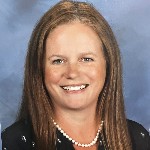 How school districts deliver Academic and Career Planning (ACP) varies widely depending on the district. Let's look at Altoona School District to see how they are using ACP to help their students determine their postsecondary direction.
How school districts deliver Academic and Career Planning (ACP) varies widely depending on the district. Let's look at Altoona School District to see how they are using ACP to help their students determine their postsecondary direction.
At Altoona, high school graduation is no longer the "finish line" for kids, according to Sarah Radcliffe, Director of Future Ready Learning. "We think of graduation as the starting line. ...And the things we're doing with them—the opportunities and experiences—prepare them to get to the starting line of life essentially."
Although ACP is required beginning in grade 6, says Radcliffe, "if we drop things on 6th graders, we know we're doing them a disservice. ...So from K-6, our program is very exploratory. It's getting to know yourself, getting to know your skills, getting to know your interests, your passions, and learning about careers."
At the same time, she says, they should also be "developing social/emotional skills and academic skills so that whatever it is that their interests and passions are, they would have the skills and aptitudes to be ready for that."
Then, all 7th graders take a "Career Development" class, which helps them hone in on a path they might like to follow. Students dig into Xello (the ACP online platform), take the matchmaker, choose a career to investigate online including average salaries, research the education required for that career and the classes to take in high school, and other factors.
"It's sort of like a mini game of life," says Radcliffe. "And then they do a report or slide presentation about their potential career."
Students, grades 8-11,are focused on getting to know the high school opportunities that can help prepare them for a chosen career.
Another key exploration tool is a career fair with 50 employers held in the spring. At Altoona, instead of making the event optional and hoping that kids show up, all students are scheduled with their grade level to walk through the career fair during the school day.
Radcliffe points out that kids' brains are still developing, "and they don't always realize how important opportunities are so ...[we provide] an opportunity that is accessible to all kids." In so doing, they address the accessibility, equity, and transportation issues that accompany career fairs that are scheduled outside the school day.
"An element that we added was that our freshman students all participated in a mock interview," she says. In preparation, freshmen take some learning modules to help them create a resume, learn interview skills, and fill out job applications. And the school works with employers ahead of time so that students are interviewed and given feedback on their interview skills.
"This was a group effort with all of our high school staff and a huge effort from our school counselors," Radcliffe says. For example, English teachers helped with resumes, and homeroom teachers encouraged students to complete online modules and fill out applications.
Altoona has also reorganized its course catalog. "We took all the elements of Redefining Ready and applied them to our high school course book [by career cluster (or career pathway)]," says Radcliffe. So if a student is interested in a certain career field, they can look on that career cluster page and see the different clubs, activities, industry credentials, work-based learning opportunities, and courses that they might enjoy.
Ultimately, she says, "[we're] helping get students ready for the workforce in a way that is helpful and valuable to those who need workers."
